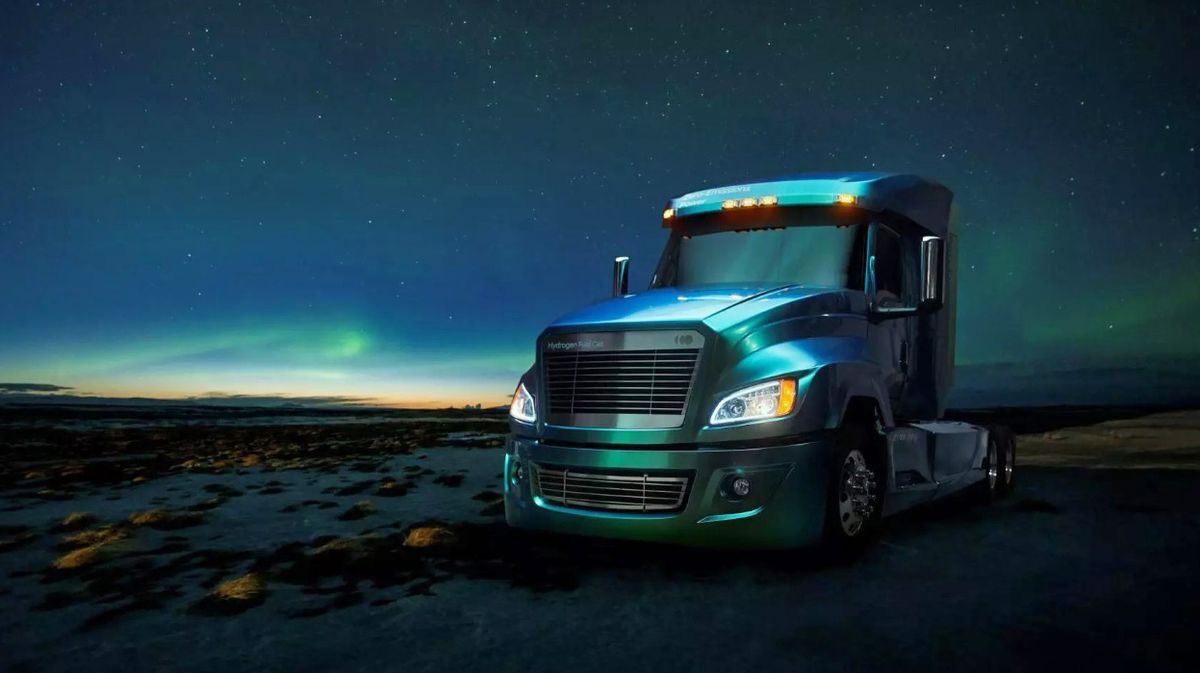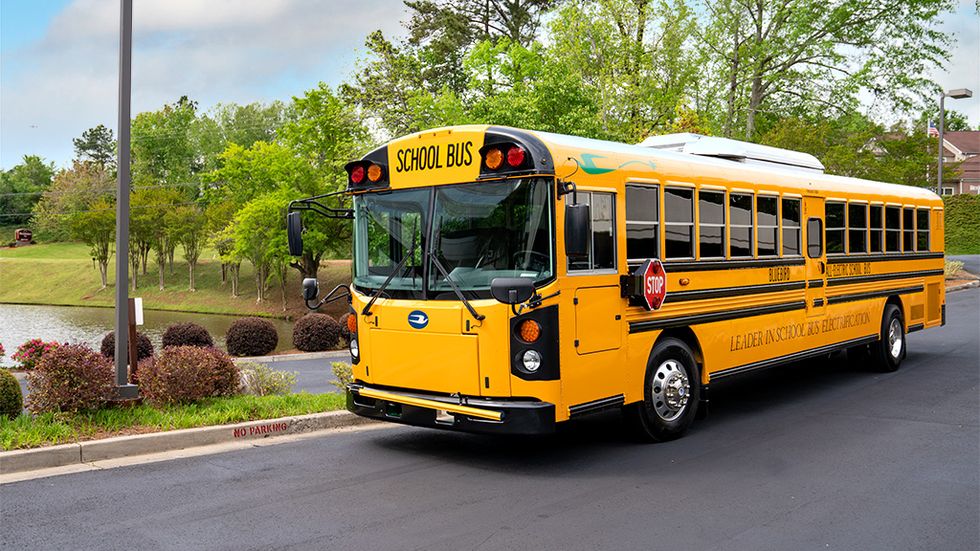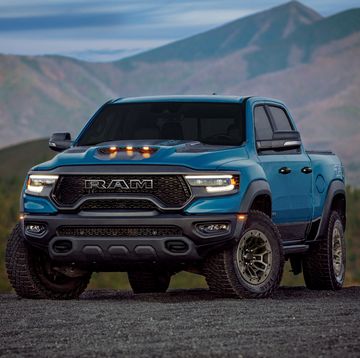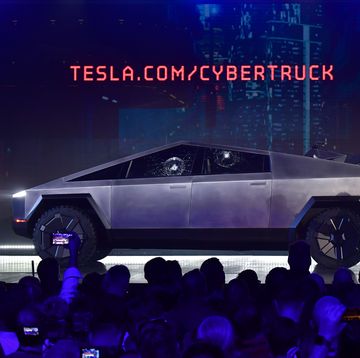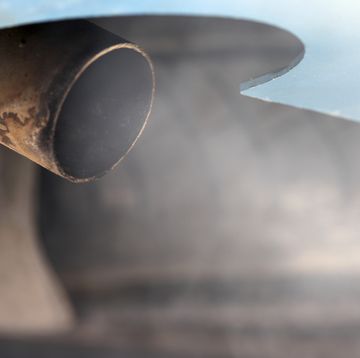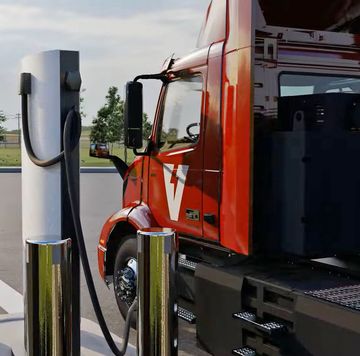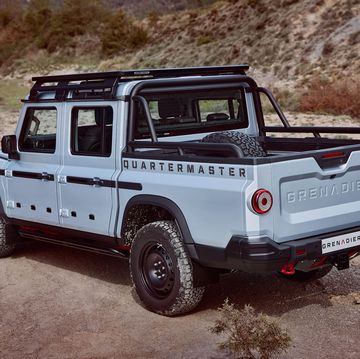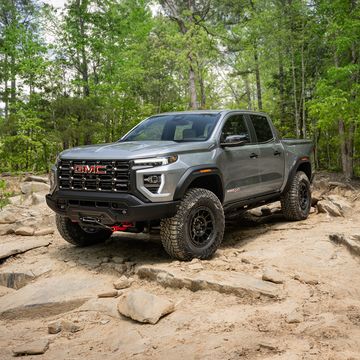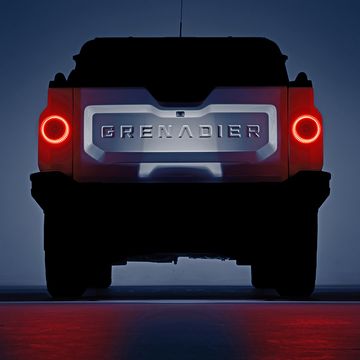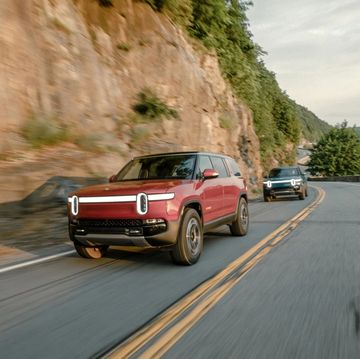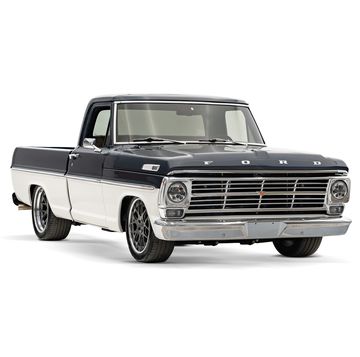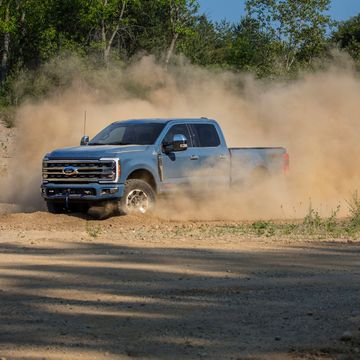- Cummins establishes Accelera brand that will combine all of its battery-electric and hydrogen fuel-cell systems under one roof.
- Accelera produces batteries, e-axles, traction systems, and other hardware for commercial EVs, in addition to electrolyzers for hydrogen refueling stations.
- The engine maker and supplier will work with Blue Bird to produce a fleet of 1000 electric school buses in the next 12 to 18 months.
Cummins might be known for its diesel engines, but the company has been building hardware for electric and hydrogen fuel-cell vehicles for some time. This includes batteries, traction systems, electrolyzers, e-axles, and even hydrogen fuel cells.
Now, the supplier and integrator has launched a new brand dubbed Accelera that will combine all of its EV and hydrogen technologies for its New Power division. The new brand will be a step toward achieving the company's Destination Zero strategy—using multiple solutions to reach industry-wide decarbonization. This vision has already seen Cummins invest over $1.5 billion in research and development, as well as acquisitions and capital to build Accelera's collection of battery-electric and fuel-cell technologies and offerings.
"Launching this new brand drives additional focus in our business and enables us to stay ahead of the ever-changing zero-emissions landscape," said Amy Davis, who will serve as president of Accelera. "By leveraging Cummins' deep understanding of our customers' needs and the demands of their applications, Accelera will deliver leading zero-emissions technologies necessary to accelerate the shift to zero."
This strategy will soon see Accelera and school bus manufacturer Blue Bird speed up efforts to build a fleet of 1000 battery-electric school buses over the next 12 to 18 months, effectively doubling the number of buses the two companies have made thus far.
Blue Bird is not alone in producing electric school buses, but much work remains to turn the nation's mostly diesel fleet into a zero-emission one, absent ambitious state mandates. On a federal level, the Bipartisan Infrastructure Law has offered a rebate program for school district purchases of ZEV buses, with $5 billion available in funding.
Accelera will also work on building a 90-megawatt proton exchange membrane (PEM) electrolyzer system—one of three main types of electrolyzers—to produce hydrogen fuel in what will be the biggest electrolyzer project that Cummins has planned to date.
This type of system uses an ionically conductive solid polymer electrolyte membrane for hydrogen production. In this process hydrogen is produced through electrolysis, with hydrogen protons passing through a membrane to create hydrogen gas, which is then stored in this state to be used as a fuel for industrial applications.
The 90-megawatt PEM system will be installed at Varennes Carbon Recycling's plant in Quebec, Canada, which works on turning non-recyclable waste into bio fuels and other chemicals.
"Establishing Accelera reinforces our commitment to leading in zero-emissions solutions and highlights our unmatched ability to leverage our deep understanding of our customers' needs and applications, technical expertise, and extensive service and support network to walk hand in hand with our customers throughout the energy transition," said Cummins President and CEO Jennifer Rumsey.

Jay Ramey grew up around very strange European cars, and instead of seeking out something reliable and comfortable for his own personal use he has been drawn to the more adventurous side of the dependability spectrum. Despite being followed around by French cars for the past decade, he has somehow been able to avoid Citroën ownership, judging them too commonplace, and is currently looking at cars from the former Czechoslovakia. Jay has been with Autoweek since 2013.
